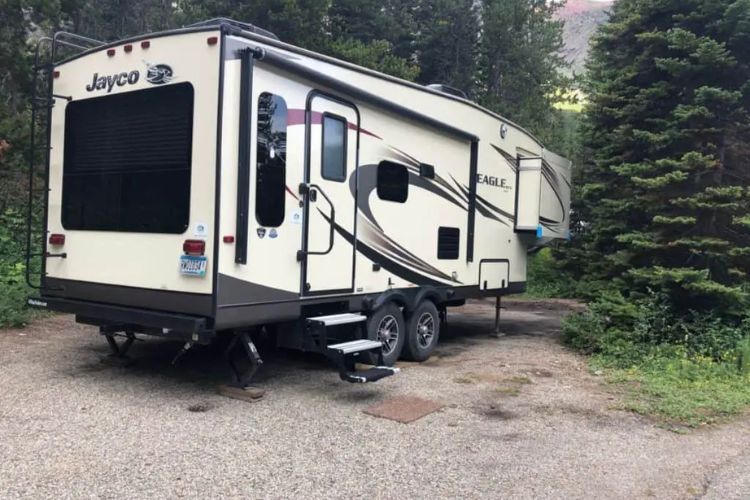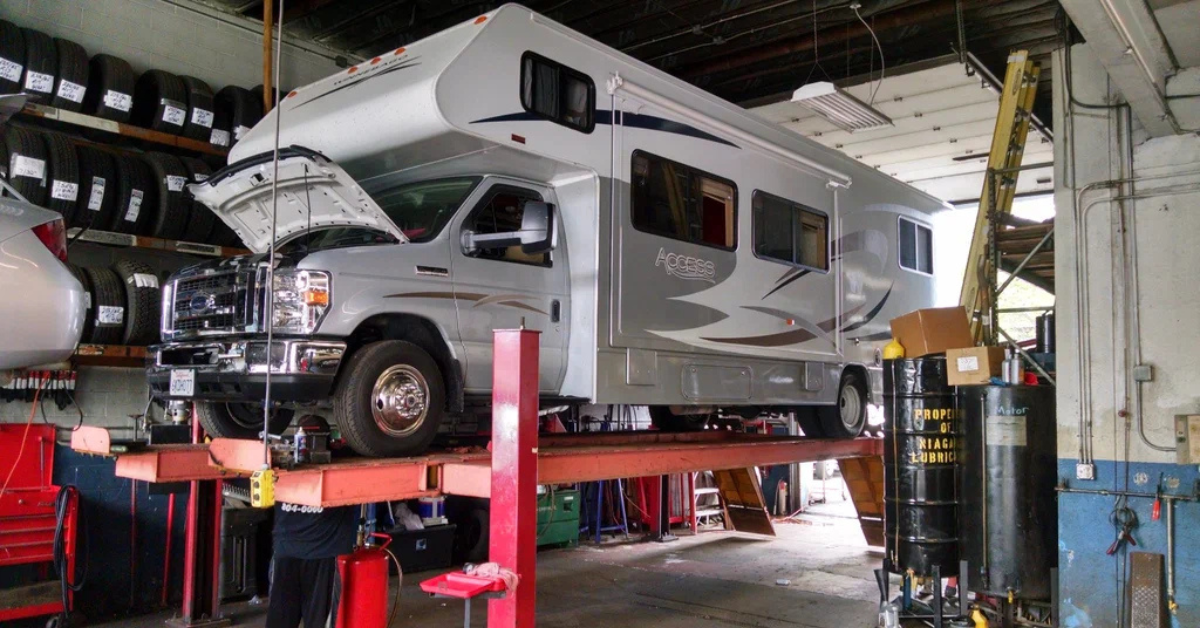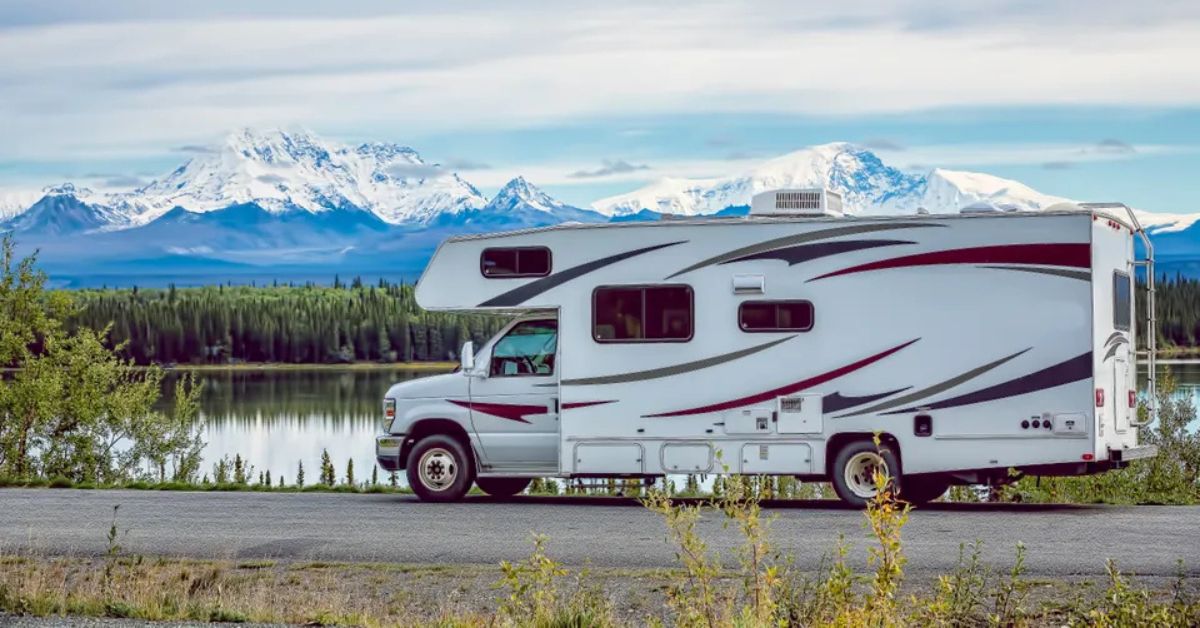Are you thinking about hitting the road in your RV? Yeah! Then, before you invest in your home-on-wheels, it’s important to ask one key question: how long do RVs last? RVs are vehicles that are considered rolling retreats, adventure hubs, and in many cases, they cater to long-term living spaces. From weekend warriors to full-time nomads, understanding the average lifespan of motorhomes, campers, and travel trailers will save you from surprise expenses down the road.
At SS RV Buyers of All, we have helped RV owners across Texas to buy and sell with confidence. But here comes one of the most common questions we hear: how long do they last? The truth is! With the proper care and a bit of know-how, they can go the distance and sometimes for decades. So let’s start!
The Truth About RV Lifespan: How Long Your Wheel Rolls?

If you are wondering how long your RV can really go? You have come across the righteous door because today we’ll break down how long different types of RVs typically last, what affects their longevity, and how you can maximize their lifespan.
Rolling Strong: How Many Miles RVs Last?
If you’re wondering how many miles your RV can truly hold up on the journey, modern models typically travel over 100,000 miles with ease. With proper care, some high-end diesel RVs can go even further, surpassing that milestone. Regular maintenance and mindful driving are key to keeping your RV running stronger.
- Gas-powered RVs typically last around 100,000 to 150,000 miles with regular maintenance.
- Diesel RVs can exceed 200,000 miles up to 300,000 miles with their stronger engines.
Behind the Miles: What Controls Your RV’s Lifespan
Your RV’s life depends on its maintenance, storage, and driving habits. By understanding these tips for buying an RV, you can keep your home on wheels in premium condition for years to come.
- Tire lifespan: RV tires generally need replacement every 5–7 years or every 40,000–60,000 miles.
- Chassis condition: A well-maintained chassis can significantly increase an RV’s lifespan, particularly for diesel models.
- Engine service intervals: Adhering to planned maintenance increases long-term dependability.
- Storage and climate: RVs kept in dry, covered storage last longer than those exposed to harsh elements.
- Regular inspections: Consistent checks on brakes, engine fluids, and hoses help identify problems early.
How Long Do Campers Last? Planning Years of Adventure
Campers are one of the most picked choices for those who love a versatile and cozy home on the road. Understanding their typical lifespan can help you make smarter buying and maintenance decisions. With proper care, many campers provide years of reliable service and memorable adventures.
- Pop-up campers generally last around 10–15 years due to wear on the fabric.
- Truck campers can often reach 20 years or more when well-maintained.
The Ultimate Checklist: How to Shape Your Campers Lifespans

Your camper’s durability depends on many little things that make a big difference. From sealing seams to smart storage, these key habits help extend your camper’s life for years of safe adventures.
- Waterproofing: To prolong your camper’s life, reseal roof seams once a year. This prevents water leaks that can cause costly structural damage.
- Interior maintenance: Rot and mildew can be avoided by keeping interior spaces dry and clean.
- Storage is essential: A camper’s lifespan can be considerably increased by storing it indoors during the winter.
- Frequent inspections: By looking for damage, leaks, and cracks early on, expensive repairs can be avoided later.
- Proper ventilation: Ensuring good airflow inside the camper reduces moisture buildup and protects against mold.
Travel Trailers & Time: How Long Do Travel Trailers Last
Most travel trailers can remain functional for 20 years or more with the proper care and routine inspections. Their longevity depends on how well you protect them from the elements, maintain key systems, and avoid common wear-and-tear issues.
- Lightweight travel trailers typically last 15 to 20 years when protected from harsh weather conditions.
- Premium travel trailers can exceed 25 years with consistent maintenance.
Long Run Secrets: What Affects Your Travel Trailers’ Life
The lifespan of a travel trailer is not determined by its age. It’s how you shaped it with care of core systems. From the frame to the roof, these key areas determine how long your trailer stays road-ready.
- Durable Frame: The foundation of a long-lasting travel trailer is a sturdy, rust-free, and well-welded frame. You can avoid hidden structural problems with routine inspections.
- Roof maintenance: By preventing water leaks and protecting insulation, yearly roof inspections and resealing help to prolong the trailer’s useful life.
- Axle and brake care: Routine maintenance of axles and brakes ensures road safety with long-term trailer support performance
- Electrical system: Upgrading old wiring and converter units improves safety, efficiency, and overall reliability during extended use.
- Weight management: Keeping your trailer within recommended weight limits reduces strain on the frame and helps avoid costly mechanical failures.
Why Owning an RV Is Worth It: Here’s What You Gain

From unplanned road trips to pet-friendly vacations, owning an RV gives you unmatched freedom and flexibility. It provides easy access to RV mobile repair services, making it more convenient than ever to stay on the road.
- Freedom of travel: There is no need for booking hotels with an RV; you can just hit the road whenever you like.
- Cost savings on trips: Cut lodging and food expenses by carrying your home and kitchen with you.
- Family bonding: RV trips offer unique opportunities for quality family time and unplugged adventures.
- Pet-friendly vacations: Travel with your furry friends without worrying about pet policies.
- Potential for remote work: Many modern RVs are equipped for working on the go.
- Strong resale market: A well-maintained RV retains its value well, especially in areas like Texas.
Ending Note
How long do you think your RVs will last? Care, usage, and the kind of RV you select will all play a role. If properly maintained, travel trailers, campers, and motorhomes can all last 15 to 25 years. However, remember that investing in quality now will result in fewer repairs and more adventures later, regardless of the number of miles or years you’re tracking.
Knowing the expected RV lifespan helps buyers plan more effectively and enjoy their investment for a more extended period. If you’re looking to sell your RV in Texas or want help choosing the right time to buy, SS RV Buyers offers fast, fair, and local support.
Protect your investment and preserve the adventure with SS RV Buyers!
Frequently Asked Questions
- How long do RVs last on average?
With proper maintenance and care, most RVs last between 15 to 25 years. Diesel models and high-end units may exceed 30 years if serviced regularly.
- How many miles can an RV handle before major repairs are needed?
Gas-powered RVs can typically handle 100,000 to 150,000 miles, while diesel RVs often exceed 200,000 miles, especially when their engines are well-maintained.
- How long do campers last compared to full-size RVs?
Campers generally last around 10 to 20 years. Their smaller size makes them more vulnerable to weather damage, but with proper storage and care, they can serve reliably for many years.
- How long do travel trailers last before needing replacement?
Travel trailers often last 20 years or more with consistent upkeep, weather protection, and regular inspections of their frame, roof, and electrical systems.
- What affects the RV lifespan the most?
Storage conditions, maintenance schedules, driving habits, and climate exposure all play significant roles in determining the lifespan of a vehicle. Keeping your RV clean, dry, and serviced is key to long-term durability.






